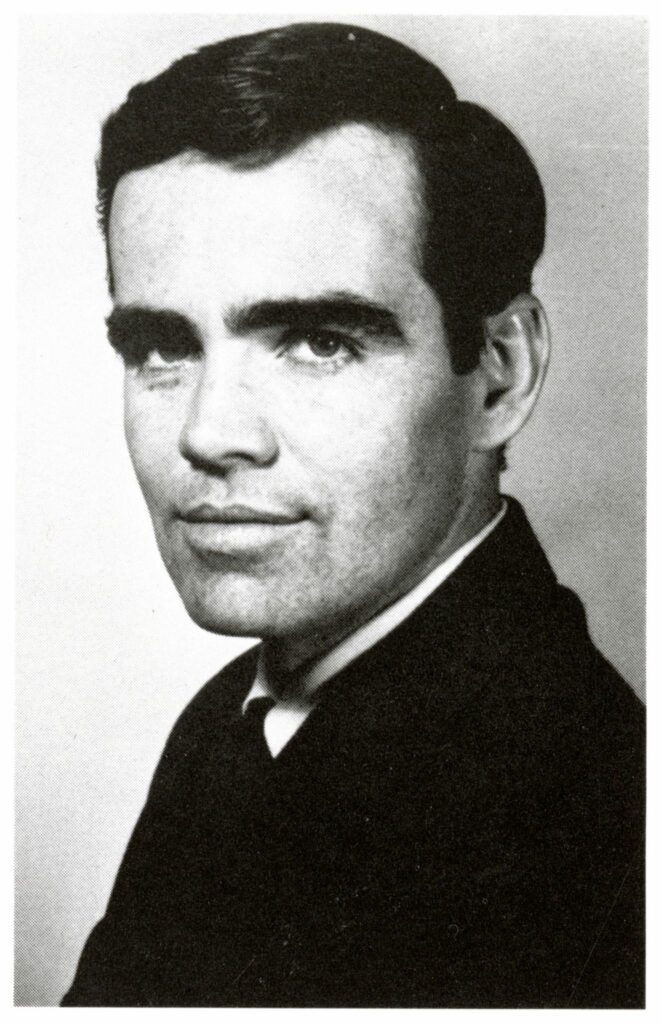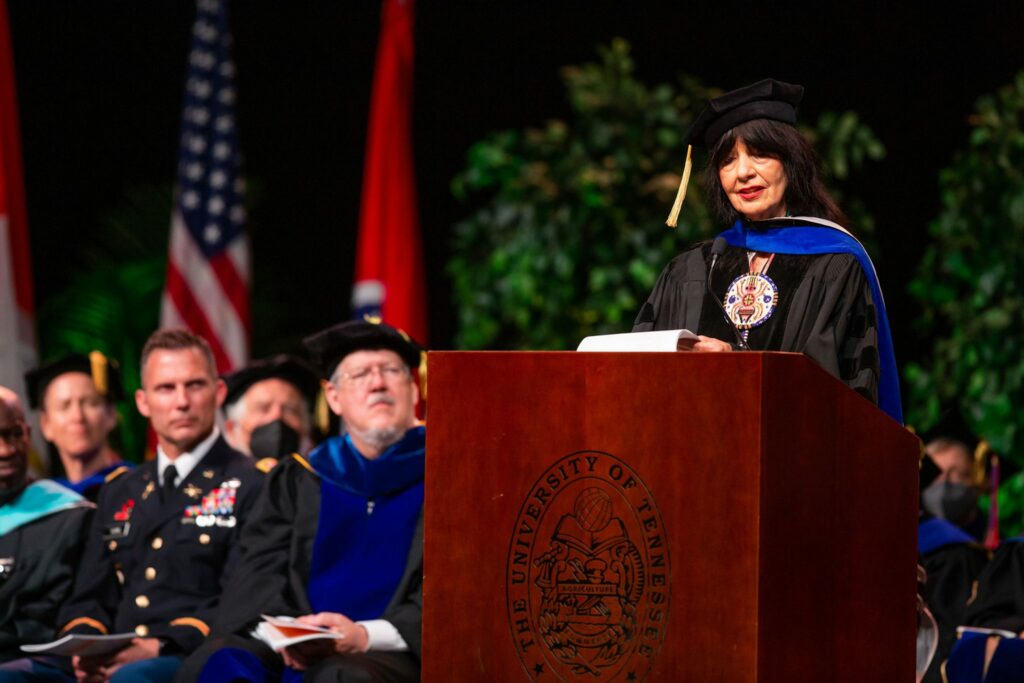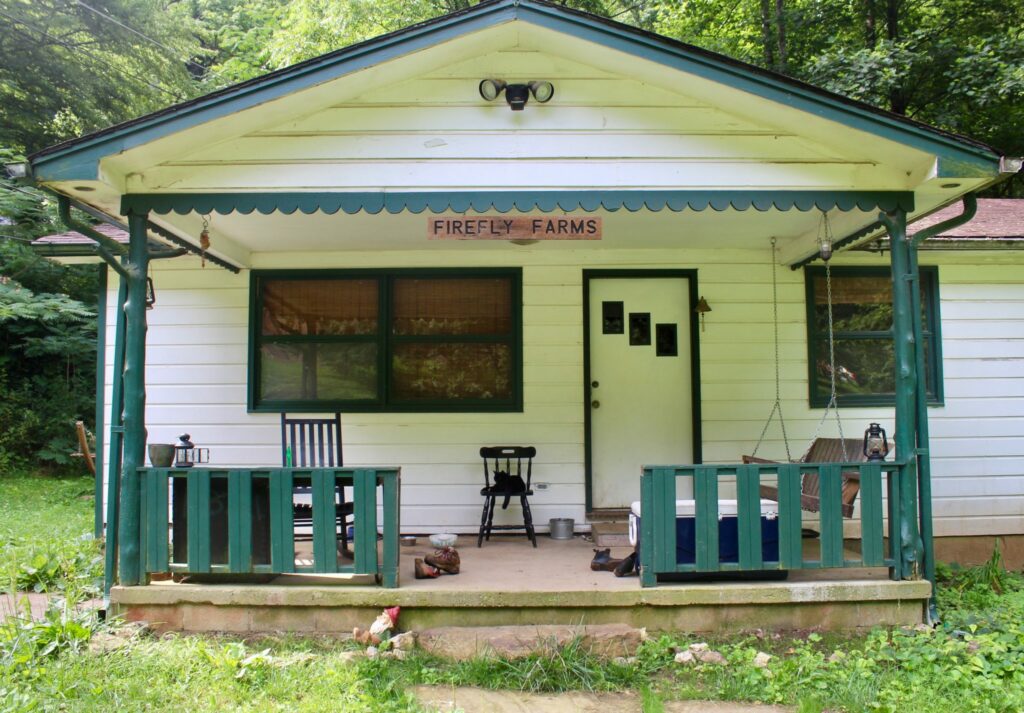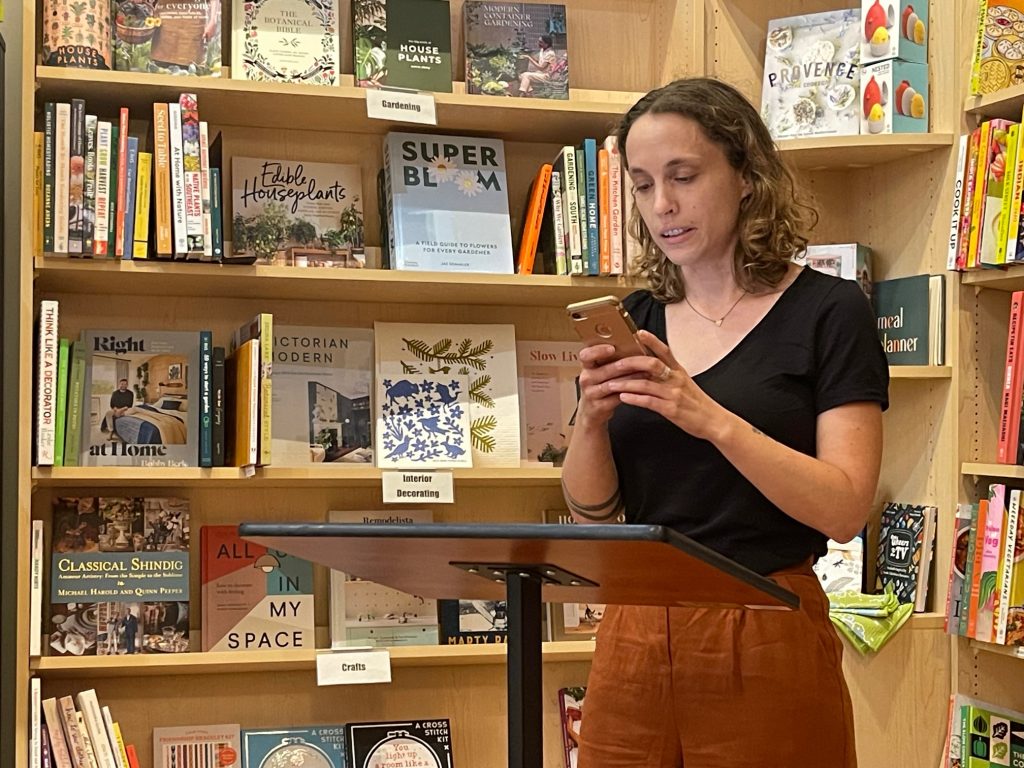You Will Be Forever Changed by the Writers You Meet
Cormac McCarthy’s death focused attention on writing at UT. But a host of writers past and present mean there is more to Knoxville’s flourishing literary scene than McCarthy’s legacy.
Written by Titus Chalk

Cormac McCarthy’s death in June 2023 returned Knoxville to book-lovers’ minds. At the time of his death, the author of Suttree, No Country for Old Men, The Road and others had a reasonable claim to the title of America’s greatest living novelist. His start, though, was more humble and included a stint at the University of Tennessee. McCarthy even published his first stories in the undergraduate literary magazine The Phoenix (still going strong, today). Indeed, Suttree (1979) is set in Knoxville and remains a reference for writers and critics in the English department – not least our resident McCarthy expert, Dr. Bill Hardwig who commemorated UT’s wayward son here and here.
Though McCarthy dropped out of UT, he remains perhaps the university’s most famous literary product. But to reduce UT and Knoxville’s writing heritage to McCarthy would be to overlook some fabulous writers who have thrived here – or who continue to make the careworn city a great place to write. James Agee (1909-1955) grew up in Knoxville and set his Pulitzer Prize-winning novel A Death in the Family in the city; Alex Haley (1921-1992), author of Roots: The Saga of an American Family (which became a seminal television series in the 1970s) spent his later years in nearby Clinton and even looms in bronze-statue form over Haley Heritage Square; and let’s not forget revered poet Nikki Giovanni who was born in the city and returned every summer during her childhood from her then home in Cincinnati, Ohio. Giovanni immortalized the city’s simple pleasures in her sun-kissed poem Knoxville, Tennessee (1970), which opens: “I always like summer/best/you can eat fresh corn/from daddy’s garden”. More recently, in 2019, Joy Harjo became national Poet Laureate whilst serving as UT’s Chair of Excellence in the English Department.

Today, Knoxville continues to attract dedicated scribes determined to chase their muse here. One of those is Kelly Luce, author of the novel Pull Me Under (2016) and the prize-winning story collection Three Scenarios in Which Hana Sasaki Grows a Tail (2013). Luce moved here with her partner, who grew up in Knoxville, after visiting the city to view the Great Eclipse in 2017. The pair found an old grist mill to live in and renovate and have started a family here. Now, Luce has received an Individual Artist Fellowship in Literature from the Tennessee Arts Commission, helping her write a new book, by paying for research-related travel and childcare – things that are vital to a sustainable writing life. Beyond that, Luce feels like she has landed somewhere that appreciates what she does: “Knoxville’s art and maker scene makes it special, and a great place to be a working artist of any stripe,” she says. “It’s energizing to live someplace that values art and artists.” Luce lists numerous spaces in the city where people can host readings, events, meet others and exchange ideas, from book stores like Union Ave Books or Addison’s (brimming with rare and antiquarian tomes), as well as maker spaces like Able Trade. Luce also points to Loghaven and Sundress – two local residencies, which ensure a regular flow of creative people through the city.
Sundress is the brainchild of Erin Elizabeth Smith, a Distinguished Lecturer at UT, who was recently named a Poet Laureate Fellow by the Academy of American Poets. Sundress began life as a publisher in 2000 and has since blossomed into a bucolic residency and reading series, too. Smith is now a lynchpin of the local literary scene who helps bridge any notional divide between town and gown. Budding writers at UT have volunteered for Sundress, spent time writing at its farm headquarters, read at its readings. Says Smith, “The university is full of talented writers who want to give back to the community, and it’s an honor to get to work with them and help them grow”.

Both she and Luce place a high value on literary citizenship – writers not only squirreling themselves away to work, but playing a role in supporting the wider ecosystem of reading, writing, publishing, teaching; the many disciplines that go into producing writers and their finished work. Smith hopes that after a coronavirus-shaped bump in the road Knoxville will continue to provide opportunities for literary citizenship, especially in the gradual return of in-person readings and other events. Luce, though, also points to the changing nature of literary citizenship, especially after the pandemic normalized remote working and online events. In fact, Luce is Editor-in-Chief of The Commuter, a literary magazine that’s part of New York-based literary website Electric Literature. Knoxville allows her to write locally and interact globally: “Thanks to the internet, you can be a literary citizen anywhere,” she says. “There are tons of online readings, classes, and author talks going on all the time, even more since the pandemic. There’s BookTok and Instagram and all the other new platforms where writers gather and gossip and share ideas and opinions.” Be it at UT, in the city at large, or in Knoxville’s verdant surrounds, there are opportunities for each writer to find the blend of community, inspiration, and seclusion that suits them.

What might start as a creative writing class at UT, with its decorated faculty in genres spanning poetry, fiction, creative non-fiction and even screenwriting, can go on to be a working, writing lifetime in Knoxville. Director of UT’s Creative Writing Program Michael Knight wouldn’t have it any other way: “From the window of my office I can see shades of both McCarthy’s Suttree and Agee’s Death in the Family. There’s no question that those two novels infuse Knoxville with literary gravity”. Smith, too, says Knoxville is a special place to work, even if it’s a different aspect of the landscape which nourishes her: “This part of Appalachia is truly one of the most beautiful places on earth, and it’s hard not to be inspired by its hills and hollers. While I feel that it was chance that brought me here, it’s the people, the camaraderie, and the joy I get to share with others who have devoted their life to art that made me stay. If you come to UT, you will be forever changed by the writers you meet.”